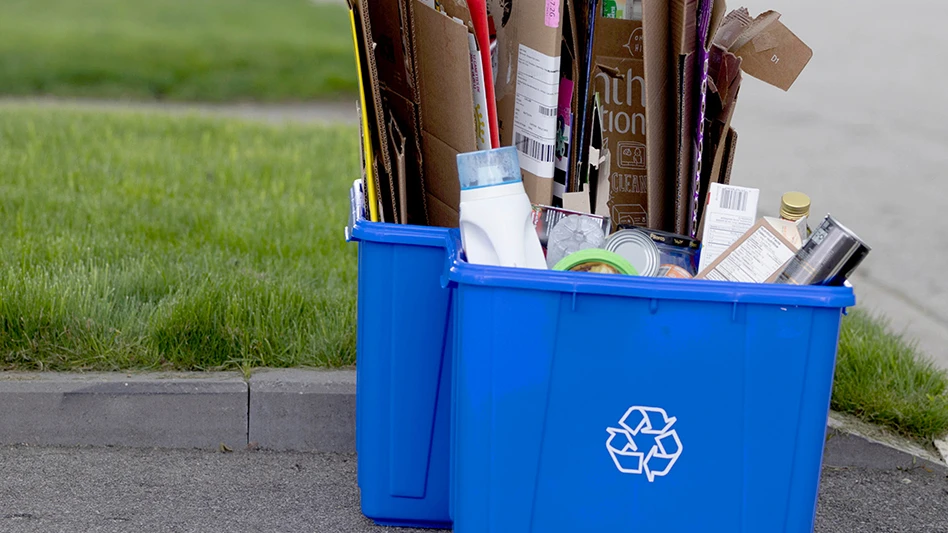
Photo courtesy of Circular Materials
Circular Materials, a Toronto-based not-for-profit organization focused on helping brands and manufacturers meet their obligations under extended producer responsibility (EPR) regulations in Canada, says it is making progress toward Ontario’s transition to EPR for packaging and paper material.
“EPR represents a fundamental change in which producers—the businesses supplying paper and packaging to residents—take responsibility of funding and managing the end-of-life management of materials,” the organization says.
As the administrator of Ontario’s “blue box” residential recycling collection system, Circular Materials also will be responsible for connecting those materials to the EPR system.
The organization says technological advancements that will modernize the system and play a pivotal role in enhancing efficiency and accuracy are being developed, including innovations such as artificial intelligence- (AI)- enabled cameras and optical sorters equipped with advanced sensors at the collection and sorting stages.
Circular Materials notes that, historically, Ontario’s blue box programs have been operated by municipalities and tribal communities who were responsible for paying about half of the costs of the program, with producers responsible for the other half.
“Under the new Blue Box Regulation, producers will be responsible for fully operating and funding the program,” the organization says, adding that the transition to the new system is taking place between now until full EPR implementation in the province starting Jan. 1, 2026.
The new system has met with some criticism. A 2022 Toronto Star report quotes Jo-Anne St. Godard, executive director of the former Recycling Council of Ontario, now known as the Circular Innovation Council, as saying, “I remember when it first came out … we were calling each other going, ‘I don’t even know how to read this.’”
The same report quotes Canadian recycling consultant Usman Valiante as saying, “They’ve written a regulation, ostensibly to promote competition, that’s turned into the most anti-competitive recycling regulation I’ve ever seen.”
The critics, as summarized by the Star, say with the looming system, the government is not letting the market do its job by "setting high standards and then getting out of the way.”
“The government did exactly what we were all fearful of them doing, which has been to be too prescriptive in the process," St. Godard says.
Another critic. Ontario consultant Duncan Bury, tells the Star, “What they’ve developed is way more complicated than it needs to be, and I think there’s real worries about how this will actually roll out.”
Circular Materials, however, expresses optimism it will be able to offer “unparalleled precision and improved efficiency" while simultaneously reducing contamination levels in the province’s recycling systems.
“Circular Materials is pleased to lead Ontario’s journey towards establishing a streamlined recycling framework that will deliver tangible results and benefit residents, communities and the environment,” Circular Materials CEO Allen Langdon says.
“Starting in 2026, Ontarians can expect the implementation of a convenient, consistent and effective recycling system that will improve recycling rates and drive positive change for generations to come."
“The process of returning materials directly to producers through EPR, is a unique approach not yet implemented anywhere else in the world," the company adds. "This new process will be piloted this year and has been made possible through extensive collaborative partnerships across the supply chain, which Circular Materials has spearheaded in the last 12 months in Ontario and nationwide.”
Latest from Waste Today
- Fuzion acquires Elite Roll-Off Services
- Los Angeles County files lawsuit against Chiquita Canyon Landfill operators
- Lux Research questions hydrogen’s transportation role
- Interstate Waste marks 25 years with record growth, strategic acquisitions
- Hauler Hero announces $10M in seed funding
- SECCRA signs up for landfill gas-to-energy system
- Hyster-Yale commits to US production
- VLS Environmental Solutions acquires Virginia waste management services provider





